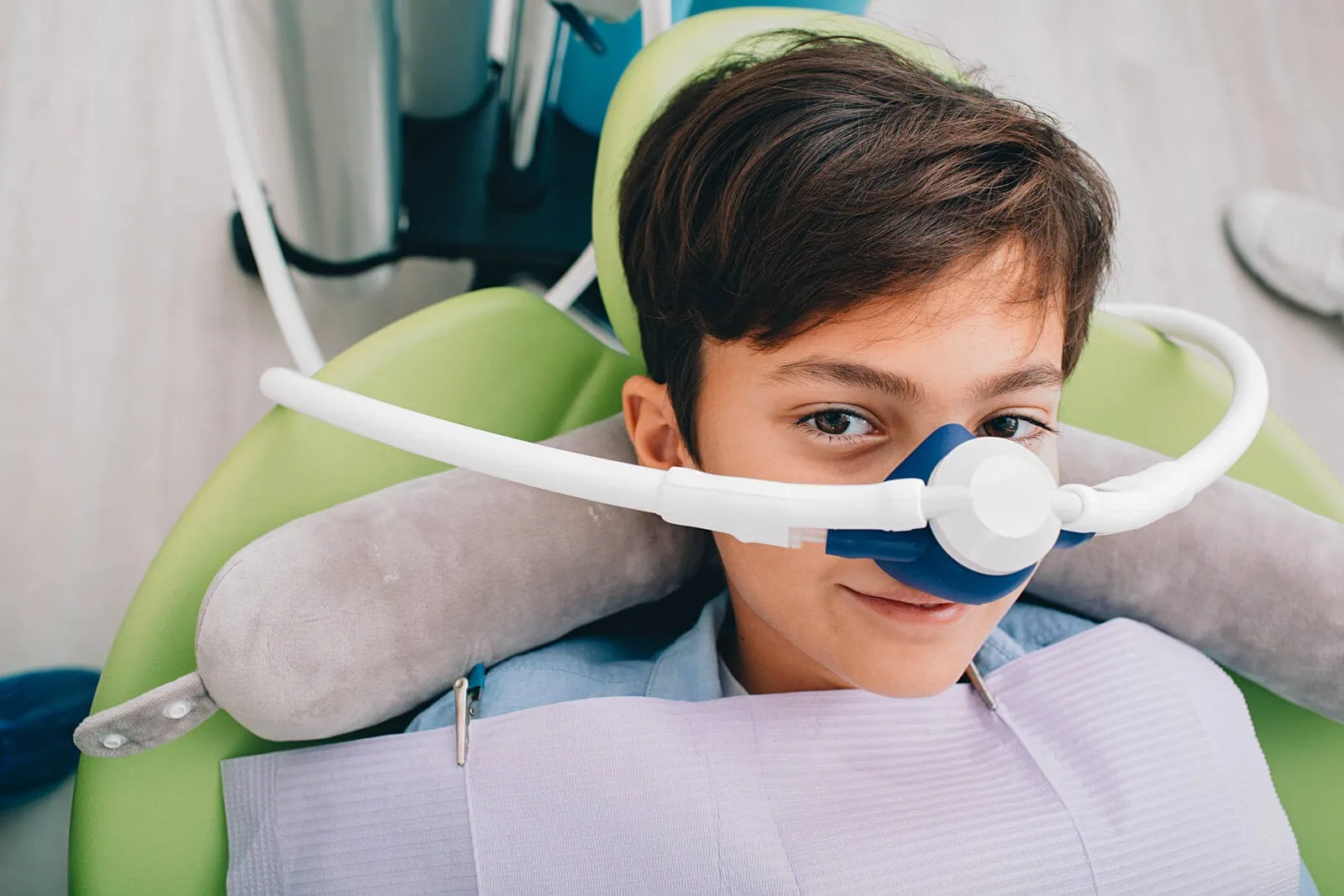When you think of sedation, you may think first of general anesthesia, a type of sedation that renders the patient completely asleep. While this is a common type of sedation, it is not the only type available.
Several dental procedures require some form of sedation. Common procedures like root canals and wisdom tooth extractions often call for sedation, as they can be painful when experienced while fully conscious. Different patients and procedures each require a different variety of sedation, and in this article, you’ll learn the options that may be utilized in your child’s treatment.
Nitrous Oxide
You may know nitrous oxide more commonly as “laughing gas.” Some children are given nitrous oxide/oxygen to relax them for their dental treatment. Nitrous oxide/oxygen is a blend of two gasses, oxygen and nitrous oxide. Nitrous oxide/oxygen is administered through a small breathing mask which is placed over the child’s nose, and allows them to relax without putting them to sleep.
The American Academy of Pediatric Dentistry recognizes this technique as a very safe, effective technique for treating children’s dental needs. The gas is mild, easily taken, and it is quickly eliminated from the body and it is non-addictive. While inhaling nitrous oxide/oxygen, your child remains fully conscious and maintains all of their natural reflexes.
Conscious Sedation
Conscious Sedation is recommended for apprehensive children, very young children, and children with special needs. It is used to calm your child and reduce the anxiety or discomfort associated with dental treatments. Your child may become quite drowsy and may even fall asleep, but they will not become unconscious.
There are a variety of different medications that can be used for conscious sedation. Your dentist or orthodontist will prescribe the medication best suited for your child’s overall health and dental treatment plan, and will be happy to answer any questions you might have concerning the specific medicine they plan to administer to your child.
Outpatient General Anesthesia
If your child is nervous or apprehensive, very young, or has special needs, Outpatient General Anesthesia may be recommended as an alternative to other types of anesthesia that your child may not do well with. General anesthesia renders your child completely asleep. This would be the same as if the child was having their tonsils removed or having a hernia repaired. Outpatient General Anesthesia is performed in a hospital or outpatient setting only.
Some parents may be wary about the risks of this type of sedation. While the assumed risks are greater than that of other treatment options, the benefits of this treatment greatly outweigh them. Most pediatric medical literature places the risk of a serious reaction in the range of 1 in 25,000 to 1 in 200,000, far better than the assumed risk of driving a car.
Without general sedation, for children who may require it, risks include having multiple appointments, potential for physical restraint to complete treatment, and possible emotional and/or physical injury to your child in order to complete their dental treatment. The risks of NO treatment include tooth pain, infection, swelling, the spread of new decay, damage to their developing adult teeth and possible life-threatening hospitalization from a dental infection.
A qualified practitioner will be happy to address concerns with you and your child prior to beginning general anesthesia.
No matter the type of sedation necessary for your child to receive the best care possible, the dentist you choose should be qualified, friendly, and informative to help ensure your visit goes as smoothly as possible. Don’t just visit any dentist– find your dental home here at Kennedy Dental Care.
At Kennedy Dental Care, our practitioners are passionate about creating excellent dental experiences for families like yours. We help your child understand their dental treatment, offering an informative and comforting presence to help ease anxiety and recommending the best-fitting form of sedation for your child’s unique needs.
Learn more about Kennedy Dental Care, your dental home, here.



